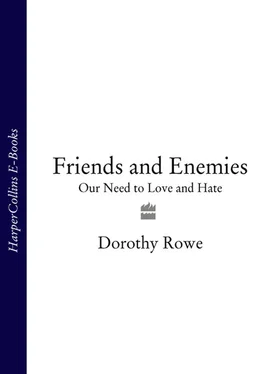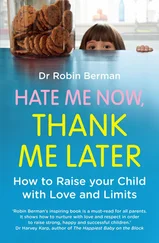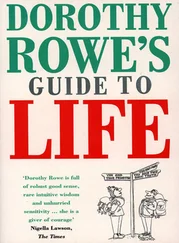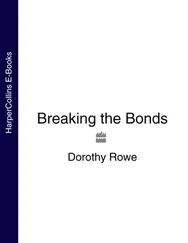Jean Said Makdisi, in her glossary of terms used in times of crisis, linked The Plot to The Plan and explained that ‘The reader should not expect proponents of conspiracy theories to show alarm at their pervasiveness. Rather, a certain perverse comfort is taken from the assurance that someone, at least, knows what is going on and why.’ 4
It is our human nature to create an explanation for everything that happens, even though such an explanation may be entirely speculative and, in many cases, quite far-fetched. We prefer an explanation which enhances our image of ourselves. The thought that someone somewhere is conspiring against us serves to boost our pride. It means that we are so important that other people have to take us into account. The explanation that the suffering of most people in Lebanon was brought about simply because they were in the way when different groups of men, who care nothing for their fellow human beings, were battling for supremacy, is too close to a truth which shows how helpless and insignificant we are in the whole scheme of things. For many people a conspiracy of enemies is preferable because it boosts their sense of personal identity. This is one of the reasons why enemies are necessary.
Asking someone about their enemies is a very intrusive question, and the answers can be surprising. At an Amnesty International party I asked a fellow guest, a strong supporter of Amnesty, whether he had an enemy. He answered immediately, ‘My ex-wife.’ People can talk about their friendships without revealing much about themselves, but talking about their enemies goes straight to the painful complexities of relationships, as the participants of a workshop showed in their definitions of an enemy. They said,
• ‘An enemy is someone who threatens my safety and leaves me feeling helpless.’
• ‘An enemy is someone who despises you, doesn’t respect you, wishes you were dead.’
• ‘Enemies are those who do not allow you to progress, to develop in your own way, but try to impose their own beliefs and opinions.’
• ‘An enemy is somebody who doesn’t give me respect or trust or openness, who has different values from me and expects me to conform to theirs, who makes life uncomfortable for me by their actions and words.’
• ‘I have loads of enemies. There’s family, people who have rigid lifestyles and who dictate to everyone. At work there’s the people who vie for power with me, and elsewhere, in politics.’
• ‘Looking carefully into my life I am aware that I have had, and probably still have, enemies, although I have a fantasy that I haven’t. An enemy is someone who wishes bad things for me and who, it seems, no amount of love or understanding will influence otherwise.’
• ‘I believe we need enemies to shift rage from family and community to outsiders or causes. Also it gives an illusion of superiority by condemning their beliefs.’
• ‘An enemy is a traitor. One who betrayed me. One who had let me down. Rejected me. An unaccepting, narrow-minded person who had not been willing to listen and who sees the truth only from their own view point. Probably envies me and therefore wishes to destroy me.’
• ‘As a child I had enemies – other children who bullied me at school and on the way home from school.’
• ‘An enemy is someone who is totally without morals. A traitor. Someone who thinks only of self-gain and themselves. Someone who has let me down.’
When I asked four-year-old Alice if she had any enemies she immediately identified the problem of how we can hate the people we love. She said, ‘Sometimes Miles is an enemy. With Christopher and Jake. Most of the time when they come to tea he doesn’t let me into his bedroom. He just wants to play with his friends.’
I asked her how that made her feel. She said, ‘A bit upset. I cry, because sometimes I am trying to get though his door and he slams it shut and I fall down the steps.’
Miles, as I discovered when he told me about his enemies, had encountered the Sex War, though he had not yet recognized it as such. He told me that most of his enemies were girls. There were those who, he said, are ‘always telling on you, and telling the teachers, “Miss, Miles did this, Miles did that.”’ Megan was the chief of his accusers, but she did much more. He said, ‘She makes me feel really bad. I say, “Look, Megan, I don’t want you playing with me because I can’t play with you all the time. I’ve got other friends.” And if I said, “I’m not your friend,” she’d go off crying. She’d go all red-faced and make me feel really bad. I just can’t leave her alone. And then when I approach her, she runs off.’
Yet at other times Megan would distract him from his work by talking to him. I suggested to Miles that Megan really liked him and did things to annoy him just to get his attention. Miles dismissed this entirely, so I let the subject drop. Time enough for him to discover that sexual attraction is not always mutual and that many miseries arise from that.
Lesley knew these miseries and others only too well. She also knew how important it is to recognize an enemy. She wrote,
An enemy is not only someone who wishes to hurt you personally but has the power, or is perceived as having the power, to do so. In the case of enemies within the family this creates difficulties, because, although a person may to all intents and purposes be your enemy, they in effect have a cloaking device. That is, because they are supposed to love you, you can fail to see them as an enemy and take action to protect yourself. Taking that a step further, you may very well fail to perceive that their words or actions are in fact a result of their malice and projections, and locate the fault in yourself. Unfortunately, this puts you in the usually unrecognized position of being your own enemy. You join the other side and fight against yourself.
If you are brought up to believe that hating or doing harm to others, even wishing it, is wrong you are left very vulnerable to enemies. You bury your own hate, and either cannot see, or feel unable to defend yourself against enemies, people who wish to harm you personally, or who wish to take something that is yours, or you see as vital to your survival.
At a time of great personal stress, a woman moved in on my marriage. I remember being sat on the rug with my two small children when she came to my home to collect my husband for a business meeting and making it as clear as day that she was after my husband by the way she behaved towards him. I didn’t feel threatened because I was still locked into the belief that marriage was for ever, but I was appalled by her lack of manners and general demeanour. I can smile in a kind way now at my innocence and naïveté. Things got worse and she was the person my husband moved on to. She would probably argue that it was nothing personal and she might refute the idea of being my enemy. But I saw her as an enemy because she was competition for the resources I needed for my children, personal as much as financial. Now my children have grown up the enmity I felt for her is fading. As the threat she poses diminishes my feelings are moving to the point where she has no importance.
Lesley’s last words echoed those of Irene when I asked her about enemies. She said, ‘I don’t think much about enemies at all. I think an enemy would be someone I disliked or hated, and again that belongs to youth. It doesn’t belong to this age.’
Of course, opportunities for making enemies abound while we are still involved in competitive work. A university professor, not English, spoke to me of his colleagues and said, ‘They smile at me and have a drink with me, and then they’ll go into committee and turn down all my applications for research money.’
When I asked Anthony if he had any enemies he said, ‘Not that I know of. There’s nobody that I could say that I couldn’t see their point of view. I don’t have enemies in the sense that they would like to hurt me or mine. I could be easily hurt, or offended, but no, I don’t have enemies as such. I don’t have friends and I don’t have enemies.’
Читать дальше












